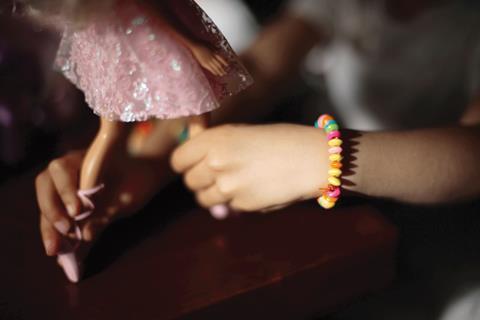You Don’t Own Me: How Mattel v. MGA Entertainment Exposed Barbie’s Dark Side
Orly Lobel
£20, WW Norton & Company
Welcome to the amazing world of American intellectual property litigation. This is sometimes called ‘death by litigation’, which means throwing every penny at a case until the other side dies, goes mad, ends up broke, or all of the above. Law professor Orly Lobel’s book is about the litigation between Mattel, the maker of Barbie dolls, and MGA, which produced Bratz, a new range of multi-ethnic dolls. The designer who sketched the new range had worked at Mattel – and the central question was who owned the ideas.

As well as telling the story of the dispute, this book also encompasses the American toy industry, and copyright and trade mark protection. I say ‘dispute’ but the word hardly covers it – this book states that one side’s costs were estimated at $450m.
Barbie was the first adult doll, meaning a doll based on an adult rather than a baby. In America, 90% of girls aged three to 10 own one. Did you know that Barbie had a pregnant sister, complete with a detachable bump fixed by a magnet? Apparently, this was cancelled because some thought it might encourage teenage pregnancies.
The book is worth buying for the details, including the fact that there is a place called Kickapoo which features in the story.
There was a person called Billyboy* who owned 11,000 Barbie dolls and 1,000 Ken dolls. He became a cultural icon. (The * was part his name, not a footnote.)
The focal point of the story is who owns employees’ ideas and to what lengths companies will go to protect their brands. If an employee wakes in the middle of the night with an idea for an invention totally different from the business they work in, does the employer own that idea?
You have to make up your own mind on the rights and wrongs of this story. The courtroom drama is far removed from Rumpole, or even John Grisham. This is a jurisdiction where judges have websites and the book features what must be the coolest judge in the world. He has his own IMDB profile and has rated 1,101 films.
A different judge said he would confiscate any mobile phones that went off during the hearing. But, turning to the jury, he said he did not mean them: ‘You have lives, kids and jobs’. When a jury member’s phone went off he stopped the case for 10 minutes to allow the juryperson to take the call. He later confiscated a lawyer’s mobile and told the jury not to worry as he could afford another one.
You will have to read the book to discover who won.
In the US, civil cases like this are tried by juries. The judge began by asking if the jury had time for a story. In 1835, a Frenchman visiting the young republic was amazed that it had a system that empowers juries to apply the law: ‘You give everyday people with common sense and wisdom the ability to apply your laws.’
Better not read this book, come to think of it. You will probably want to be a lawyer in the US.
David Pickup is a partner at Aylesbury-based Pickup and Scott































No comments yet